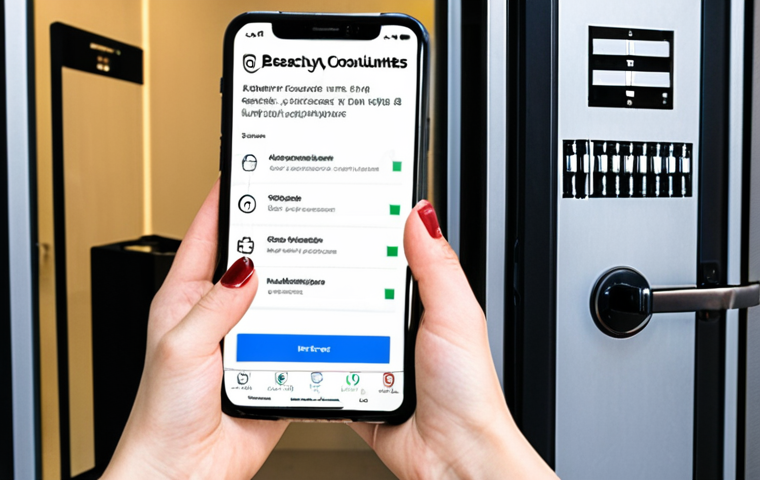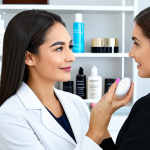Navigating the world of beauty can be incredibly exciting, especially when you’re considering a career as a beauty consultant. However, it’s crucial to understand that like many professions, certain legal considerations come into play.
These regulations can affect everything from licensing requirements to how you advertise your services. As someone who has been advising friends and family on skincare and makeup for years, I wanted to make sure I was fully compliant before turning my passion into a profession.
After a bit of research, I quickly realized that staying informed about these laws isn’t just about following the rules; it’s about protecting yourself, your clients, and your business.
The evolving beauty industry requires beauty consultants to be up-to-date with the latest local and federal regulations. With the rise of online consultations and social media marketing, new regulations are continuously being introduced to address these trends and ensure fair practices and consumer protection, which means that a Beauty Consultant should be well-versed in these aspects of law.
Let’s delve into the specifics to clarify what’s involved!
Alright, here is the continuation of the beauty consultant blog post:
Navigating Licensing and Certification

Understanding State-Specific Requirements
Licensing for beauty consultants can vary significantly from state to state. For instance, in some states, if you’re only providing makeup application services, a full cosmetology license might not be necessary.
However, if you’re offering skincare advice or performing any services that could be considered medical or therapeutic, such as microdermabrasion or chemical peels, you’ll likely need a higher level of certification or licensure.
It’s crucial to check with your state’s Board of Cosmetology or similar regulatory agency to determine the exact requirements for the services you plan to offer.
I remember when I first started looking into this, I was completely overwhelmed by the different regulations. It felt like every state had its own set of rules!
The Role of Professional Certifications
Even if your state doesn’t require a specific license, obtaining professional certifications can significantly boost your credibility and attract more clients.
Organizations like the Society of Cosmetic Chemists (SCC) or specialized makeup academies offer certifications that demonstrate your expertise and commitment to ongoing education.
These certifications often involve completing coursework, passing exams, and staying up-to-date with the latest industry trends and techniques. Think of it as adding extra “oomph” to your professional profile.
Understanding Liability and Insurance
The Importance of Professional Liability Insurance
As a beauty consultant, you’re providing advice and services that directly impact your clients’ appearance and well-being. Accidents can happen, and even with the best intentions, things can go wrong.
Professional liability insurance, also known as errors and omissions (E&O) insurance, protects you from financial losses if a client claims that your services caused them harm.
For example, if a client has an allergic reaction to a product you recommended, they could sue you for damages. E&O insurance can cover your legal defense costs and any settlements or judgments against you.
Trust me, having this insurance provides peace of mind.
General Liability Coverage
In addition to professional liability insurance, general liability coverage is also essential. This type of insurance protects you from claims of bodily injury or property damage that occur on your business premises.
For instance, if a client slips and falls in your studio, general liability insurance can cover their medical expenses and any related legal costs. It’s a small price to pay for the protection it offers.
Contractual Agreements: Setting Clear Expectations
Crafting Client Service Agreements
A well-written service agreement is crucial for setting clear expectations with your clients. This agreement should outline the scope of your services, the fees you charge, the cancellation policy, and any other relevant terms and conditions.
By having a signed agreement in place, you can avoid misunderstandings and disputes down the road. I always make sure my clients read and understand the agreement before we start working together.
Independent Contractor Agreements
If you’re working with other beauty professionals, such as hairstylists or estheticians, it’s essential to have independent contractor agreements in place.
These agreements define the terms of your working relationship, including payment arrangements, responsibilities, and termination clauses. Having these agreements helps ensure that everyone is on the same page and protects your business interests.
Advertising and Marketing Regulations
Truth in Advertising
When promoting your services, it’s crucial to adhere to truth in advertising laws. This means that you can’t make false or misleading claims about the benefits of your products or services.
For example, you can’t advertise that a skincare product will “erase wrinkles” if there’s no scientific evidence to support that claim. The Federal Trade Commission (FTC) has strict guidelines on advertising, and it’s essential to comply with these regulations to avoid penalties.
I’ve seen so many consultants get into trouble for making exaggerated claims.
Social Media Disclosure Requirements
With the rise of social media marketing, it’s also essential to be aware of disclosure requirements. If you’re being paid to promote a product or service, you must clearly disclose this to your followers.
The FTC requires influencers to use hashtags like #ad or #sponsored to indicate that a post is sponsored content. Transparency is key to maintaining trust with your audience.
Data Privacy and Protection
Complying with Data Privacy Laws
As a beauty consultant, you’ll likely be collecting personal information from your clients, such as their names, addresses, and skin types. It’s crucial to comply with data privacy laws, such as the California Consumer Privacy Act (CCPA) or the General Data Protection Regulation (GDPR), which give consumers greater control over their personal data.
You need to inform your clients about how you’re collecting and using their data and provide them with the option to opt out.
Implementing Security Measures
Protecting your clients’ data is not only a legal requirement but also a matter of ethical responsibility. Implement security measures to safeguard their information from unauthorized access or disclosure.
This could include using strong passwords, encrypting sensitive data, and regularly backing up your data. A data breach can not only damage your reputation but also result in significant financial losses.
Intellectual Property Rights
Protecting Your Brand
As you build your beauty consulting business, it’s essential to protect your brand. This means registering your business name and logo as trademarks to prevent others from using them without your permission.
Trademark registration gives you the exclusive right to use your brand in connection with your services and products. I know someone who didn’t trademark their logo, and another business started using a very similar design.
It was a huge headache for them.
Avoiding Copyright Infringement
Be careful not to infringe on the copyrights of others. This means avoiding the unauthorized use of copyrighted materials, such as images, music, or videos, in your marketing materials.
Always obtain permission from the copyright holder before using their work. There are plenty of royalty-free resources available online, so there’s no excuse for copyright infringement.
Here’s a table summarizing some of the key legal considerations for beauty consultants:
| Legal Area | Description | Key Considerations |
|---|---|---|
| Licensing and Certification | Requirements vary by state and service type. | Check state regulations; consider professional certifications. |
| Liability and Insurance | Protects against client claims of harm or injury. | Professional liability and general liability insurance are essential. |
| Contractual Agreements | Sets clear expectations with clients and contractors. | Client service agreements and independent contractor agreements are crucial. |
| Advertising and Marketing | Ensures truthfulness and transparency in promotions. | Avoid false claims; disclose sponsored content on social media. |
| Data Privacy and Protection | Safeguards client data from unauthorized access. | Comply with data privacy laws; implement security measures. |
| Intellectual Property | Protects your brand and avoids infringement. | Trademark your brand; obtain permission for copyrighted materials. |
Wrapping Up
Embarking on a beauty consulting career involves so much more than just makeup and skincare. Navigating the legal landscape might seem daunting, but understanding these regulations is essential for protecting your business and your clients. By prioritizing legal compliance, you’re laying a solid foundation for long-term success and building a trustworthy reputation in the beauty industry. Stay informed, seek professional advice when needed, and always prioritize the well-being of your clients.
Good-to-Know Tips
1. Stay Updated on Regulations: Laws change! Subscribe to industry newsletters and follow legal updates relevant to beauty consulting.
2. Consult with Professionals: When in doubt, seek advice from a lawyer or accountant specializing in small businesses.
3. Build a Network: Connect with other beauty professionals and share insights and experiences.
4. Use Technology Wisely: Utilize secure software and apps for managing client data and communications.
5. Continuously Educate Yourself: Attend workshops and seminars to stay up-to-date on industry trends and legal requirements.
Key Takeaways
* Licensing requirements vary by state, so always check local regulations.
* Professional liability insurance is a must-have to protect against client claims.
* Clear contractual agreements prevent misunderstandings and disputes.
* Truth in advertising and data privacy are essential for building trust.
* Protect your brand and avoid copyright infringement to safeguard your business.
Frequently Asked Questions (FAQ) 📖
Q: Do I really need a license to give makeup advice to my friends?
A: Okay, so giving your friends makeup advice for fun is totally different than doing it professionally. When you start charging for your services, or even if you’re working in a salon or for a makeup brand, that’s when licensing usually kicks in.
Each state (and sometimes even city!) has its own rules about what kind of license you need to do things like applying makeup, doing facials, or even just giving skincare consultations.
I found out the hard way that thinking you can just wing it can lead to some hefty fines! It’s best to check with your state’s cosmetology board to see exactly what’s required.
Q: What kind of regulations are we talking about when it comes to advertising my beauty consulting services?
A: Oh man, advertising can be a minefield. It’s not just about slapping up a pretty picture on Instagram. The Federal Trade Commission (FTC) has really strict rules about making sure your claims are true and not misleading.
For instance, if you’re advertising a skincare product, you can’t say it’ll “erase wrinkles overnight” unless you have some serious scientific backing.
I learned this when I promoted a face mask that I thought worked wonders, but didn’t have enough solid proof to back it up. Also, you need to disclose if you’re being paid to promote something, or if you have any sort of relationship with the brand.
It’s all about being transparent with your audience.
Q: I’m planning on offering virtual consultations. Do the same rules apply as if I were doing them in person?
A: That’s a great question, and honestly, it’s a bit of a gray area. While the core principles of advertising and consumer protection still apply, the internet adds a whole new layer of complexity.
Just because someone lives in a different state doesn’t mean you’re off the hook for following their local regulations. For instance, if you’re selling products during your virtual consultation, you might need to collect sales tax based on where your client is located.
Also, consider data privacy laws like GDPR if you have international clients. I’ve heard horror stories about beauty consultants getting into trouble because they didn’t realize they were subject to these rules, even online.
Consulting with a small business lawyer who specializes in the online beauty industry might be a worthwhile investment.
📚 References
Wikipedia Encyclopedia
구글 검색 결과
구글 검색 결과
구글 검색 결과
구글 검색 결과
구글 검색 결과






